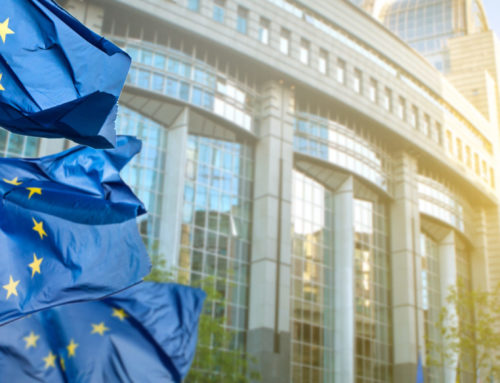Mandatory in 146 jurisdictions, these new IFRS standards will accelerate the integration of the non-financial dimension in the financial communication of companies.
The Board introduced the permission to rely on the Global Reporting Initiative Standards (GRI) and European Sustainability Reporting Standards (ESRS).
On 16th February, the ISSB held its deliberations on the implementation of the new international accounting standards IFRS S1 and IFRS S2.
The International Sustainability Standards Board (ISSB), the non-financial standard-setting board of the IFRS Foundation, met in Montreal on 16th February 2023. The Board members continued their deliberations on the first two draft IFRS Sustainability 1 General Sustainability-related Disclosures and IFRS Sustainability 2 Climate-related Disclosures, and on the transition of both standards to the ballot procedure. Mandatory in 146 jurisdictions, these new IFRS standards will accelerate the integration of the non-financial dimension in the financial communication of companies.
In 2022, one of our previous articles presented the challenges of these new standards for companies, the harmonisation work on which they are based, and how they impose a financial vision of sustainable development.

Mandatory in 146 jurisdictions, these new IFRS standards will accelerate the integration of the non-financial dimension in the financial communication of companies.
Last month, ISSB first addressed the topic of sustainability risks and opportunities: how to identify and disclose them?[1]
The draft IFRS S1 included a requirement to take into account recent pronouncements of other standard-setting bodies on the subject. The Board agreed to amend it by changing the requirement to a permission. Similarly, the Board introduced the permission to rely on the Global Reporting Initiative Standards (GRI) and European Sustainability Reporting Standards (ESRS).
These permissions apply only in the absence of a relevant IFRS Sustainability standard for the topic under consideration.
A provisional agreement has been reached on the entry into force of IFRS S1 and IFRS S2 for annual reporting periods beginning on or after 1 January 2024.
For the first reporting period, companies will not be required to publish their non-financial reporting at the same time as their financial reporting.
More details on the implementation of IFRS1 and IFRS2
The second crucial topic discussed by the board members was the effective date of application of these new standards [2].
A provisional agreement has been reached on the entry into force of IFRS S1 and IFRS S2 for annual reporting periods beginning on or after 1 January 2024. Companies may choose to apply the standards before this date, provided they disclose this fact and apply both standards at the same time. The Board also reached a provisional agreement on several measures to facilitate the application of these new standards, which may cause difficulties for companies that are not sufficiently prepared [3].
For the first reporting period, companies will not be required to publish their non-financial reporting at the same time as their financial reporting. They will also be relieved of the obligation to use the GHG Protocol emissions accounting standard[4], if their previous annual report uses a different basis of measurement. Disclosure of Scope 3 emissions remains optional for this first reporting period.
These regulations were to be implemented with the 2024 annual report for the 2023 fiscal year for large companies. Smaller companies will have an additional year to prepare.
Publication of finalised standards planned for mid-2023
The ISSB expressed its satisfaction with the consultation and analysis process carried out on the IFRS Sustainability 1 General Sustainability-related Disclosures and IFRS Sustainability 2 Climate-related Disclosures projects [5].
The Board felt that further consultation was not necessary and therefore approved beginning the ballot process. Publication of the finalised standards is expected by the end of the second quarter of 2023.
Do you need help integrating CSR effectively into your business strategy? You are in the right place.
Make an appointment to find out how to initiate and structure the process while guaranteeing your chances of success.
Notes and references
[1]Sources of guidance to identify sustainability-related risks and opportunities and Disclosures, IFRS
[2] Effective date, IFRS
[3] Proportionality and support for those applying IFRS S1 and IFRS S2, IFRS
[4] The Greenhouse Gas Protocol: A corporate accounting and reporting standard, GHG Protocol
[5] Due process and permission to ballot, IFRS
About Positiveco
At Positivéco, we see new national and international CSR regulations as vectors for positive growth.
Our job: to improve the readability of your activities for better valuation.
Since 2009, we have been supporting financial institutions, public players, and listed and unlisted companies in the evaluation of their CSR policies, the production of their extra-financial reporting and the implementation of their climate investment and aid projects. Development.
Make an appointment today and find out how to meet the new requirements of economic transparency while serving the project of your company.









Contact us now!